
 Reading, Short And Deep #041
Reading, Short And Deep #041
Eric S. Rabkin and Jesse Willis discuss The Purple Pileus by H.G. Wells
Here’s a link to a PDF of the story.
The Purple Pileus was first published in Black and White, December 1896.
Posted by Scott D. Danielson

 Reading, Short And Deep #041
Reading, Short And Deep #041
Eric S. Rabkin and Jesse Willis discuss The Purple Pileus by H.G. Wells
Here’s a link to a PDF of the story.
The Purple Pileus was first published in Black and White, December 1896.
Posted by Scott D. Danielson

 The SFFaudio Podcast #395 – Jesse and Wayne June talk about The Slithering Shadow (aka Xuthal Of The Dusk) by Robert E. Howard
The SFFaudio Podcast #395 – Jesse and Wayne June talk about The Slithering Shadow (aka Xuthal Of The Dusk) by Robert E. Howard
Talked about on today’s show:
Wayne’s first exposure to Robert E. Howard, “repetitious and childish, a self-vitiating brew of pseudo-science”, stage illusions and , repetition, “Oh, Conan!, Robert would have wanted it that way, REH is having some fun with a genre he normally doesn’t play in, Red Nails, Conan is dismissive of the city’s population, degeneration, drug addled drug attics in dopey hazes, lasers, radium light bulbs, manufacturing food from the primal elements, Valeria vs harem slave Natala, devious, controlling, self-interested, a lot of depth behind the shallowness in this story, Conan is really grumpy from page one, gigantic mirth: she’s only human, curmudgeon Conan, poisoning the well, don’t grab my sword arm, slap on the ass, a grumpy sexist, Howard’s doing something really really funny, The Slithering Shadow is a gothic horror, silliness, women written like cartoon characters, not reminding you of your mortality, not about the uselessness of existence, clunky elements, a haunted castle, kicking and screaming, bad casting, trap doors, up to the hilt, sitting on another divan, sooo gothic horror novel, hidden passageways, trapdoors, convoluted coincidence, Edgar Allan Poe’s The Oval Portrait, very recently and hurriedly abandoned, still food on the table, candles that have just been blown out, one spot of blood, The Monk, a giant helmet, a giant dome at the center of the city, one giant palace, all the trappings of a haunted mansion, switching gears, describing Thog, jumping right into H.P. Lovecraft, men of action, biting the Lovecraftian horror, what Cimmerians are like, passive aggressive Conan, in all of Howards writings about Conan, a blood feud, a lack of reproduction, an H.G. Wells trick, why the drug element is so heavy, the golden wine (a healing potion), Howard’s doctor father was very familiar with heroin addiction, Fort McMurray, “morons”, barbarians vs. the civilized, Thalis’ experience, the Fred Van Lente adaptation for Dark Horse Comics, initiated into the cult of Derketa, not my first rodeo, a gang-bang, better to kill Natala, Thalis’ life story is a horror show hidden behind a few words, that’s the cover of Weird Tales, who is this story intended for?, racy, sex, before Natala knifed Thalis, I don’t like getting stabbed, taught to be hard and cruel, Thalis’ chance at revenge, a Stygian Queen, growing up with doped out morons, a gruesome comeuppance, Thog doesn’t just eat you he rapes you first, digested for a thousand years, tentacles, the face of Thog, a non-euclidean face, a 40 year Texas feud, Thog at the center bottom of the city, a big black amorphous mass, Thog is the mad lady in the attic, a stoic attitude towards destiny and fate, from the likes of Thog, Thog is the oil, the cause for the addiction and for the city, unseen until it gushes all over you, fundamentally Howard is not completely wrong about civilization, trigger warnings and sexism, the limitations on what a woman can be in Xuthal (get a real man), moral judgements, his own code of ethics, stealing a slave, Natala’s safety is bound up with his morality, a kind of a rescue, the rebel Prince Almuric, a great river flowing into the desert, dead with forty arrows, canteen full of water, a rich and decadent place, black lotus, cursed, the desert will be kinder, a rebel prince of Stygia, Thalis was like a Natala, she’s the heavy (other than Thog), whip up some anger, Thalis is a Natala without a Conan, this “civilized” society, one of the worst Conan stories by one of the best writers of pulp fiction is still a pretty good story, super-hero-ish, Howard was smart at marketing, Margaret Brundage, lesbian scenes on the cover, gratuitous nudity, temptation, Queen Of The Black Coast, Belit, a pirate queen, first mate (literally), Belit runs that story, a noir awesome ending, the coincidence, “I guess I could do a gothic – Conan won’t like this”, having fun with it, all those tropes, the comics adaptations, done in Stygian, when Conan talks in word balloons, a rough-hewn word balloon (a Cimmerian accent?), you don’t want to do Arnold, a pulpy breezy, showing the Xuthalians hooked up to IVs, smoking your black lotus, the den of an opium smoker, chasing the dragon, enough backstory to make it interesting, an opium inundated culture, yellow skinned, China in decline, the Hermit Kingdom, decadence collapsing, a yellow peril story, San Fransisco, Chinatown, Lovecraftian elements, The Hour Of The Dragon, start with a random story, outliers, Beyond The Black River, Queen Of The Black Coast, an epicness, forty issues of awesome adventure, the tie between pulp adventure and comics, comics are the legacy of the pulps, The Shadow, Doc Savage is a pulp superhero with a super-team, in the 1970s, Conan The Barbarian, the Roy Thomas adaptation from Savage Sword of Conan #20, 1977, essentially nudity, heads being lopped off, no blood and no death, Curtis Publications, kick-ass stories, amazing pulp adventure, a 60 page comic adaptation, “freely adapting”, Conan finds a lost valley – Iskander’s kingdom, crocodile men and bird men, walking zombies, all sorts of things need to have their heads lopped off, Marvel was the dark side vs. DC, sel-doubt and existential anxierty of the heros, John Buscema, Alfredo Alcala, Ernie Chan, the amazing Filipino artists drawing busty ladies and big armed barbarians, Warren Comics, Heavy Metal, Richard Corben, so much richness in the non-superhero comics, Pepe Moreno, Rebel (1984), Mad Max meets Escape From New York with Nazis, a hot rod gang with a heart of gold, victory by blowing up the World Trade Center, power in visualizing, the “steely thews” of Conan, eldritch vs. thews, cat-like, jaguar, pantherish, the battle scenes really flowed, Howard highly influenced by Lovecraft, The Black Stone, an elegance of colour, colour in every particle of sand, the opposite of Lovecraft, with Lovecraft the horrible thing makes its appearance and you faint, Howard wades in on it, Lovecraft would never do that, one can’t battle gods and get away with a whole skin, psychic damage vs. physical damage, Howard is a complement to Lovecraft, physicality, fighting against the inevitability, there’s life there, bleak and grey vs. blood flying everywhere, Robert E. Howard was a lot lustier, “a superfluity of naughtiness”, tongue in cheek, “spicy”, Railroad Man’s Magazine, Air Stories, Zeppelin Stories, True Detective, Spicy Detective, Spicy Mystery, Spicy Adventure, Twilight is nothing new, sexist so sexist, racist so racist, women readers asking for more nudity and spicy, reading it with one hand, women liked and wrote for Weird Tales, Dorothy Quick, Mark Twain, Maude Ludington Cain, yeah it’s sexist, keep behind me girl, “Why is he calling her a girl?”, “Oh, he’s sexist.”, visualizing what is said, what if someone saw us?, there’s blood on the stones, Conan at his stupidest, a crimson mist descended over his eyes, don’t let the blind bull-headed grumpiness be a guide for what he’s like, there’s a great character there.







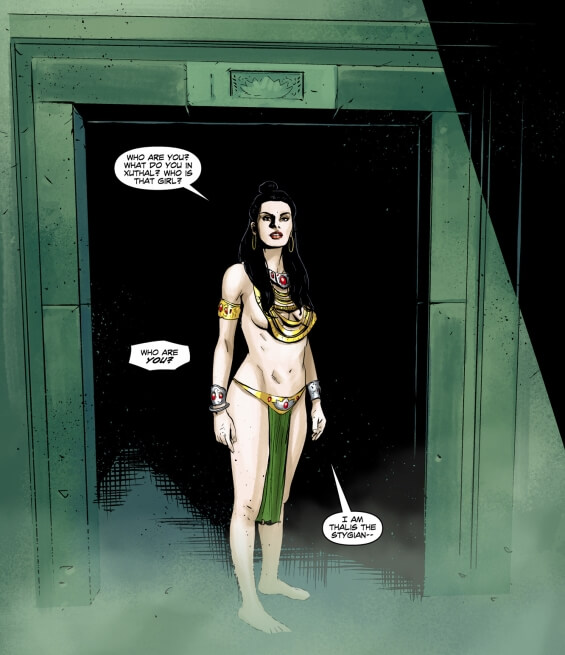





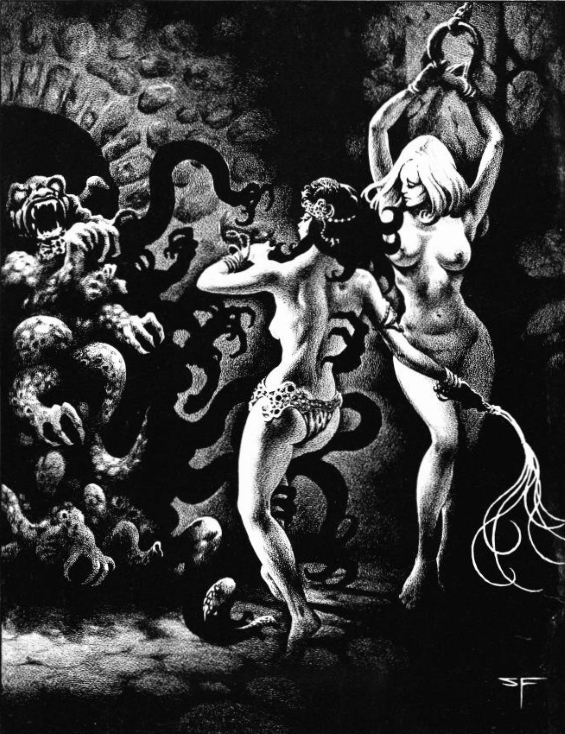
Posted by Jesse Willis

 The SFFaudio Podcast #383 – Jesse, Bryan Alexander, and Steen Hansen talk about The Andromeda Strain by Michael Crichton.
The SFFaudio Podcast #383 – Jesse, Bryan Alexander, and Steen Hansen talk about The Andromeda Strain by Michael Crichton.
Talked about on today’s show:
1969, before the Apollo 11 Moon Landing, contemporary critics, SF critics vs. mainstream critics, the defense of the ghetto against interlopers, Ray Bradbury, Doris Lessing, a deep feeling, spoiling the book, showing what was wrong with it, getting the facts wrong, interpretation, Luke Burrage reviewing, Robert J. Sawyer, bad writing, had they done nothing … nothing would have happened, the mutation, the Wildfire facility, Star Trek, scientists out for the good of humanity, self-destruct sequences, MAD: Mutually Assured Destruction, every nuclear sub movie, film-like, The Ipcress File by Len Deighton, airport fiction tropes, hyper competent high level government high tech mcguffins, brain-washing, novel -> film, written for film?, ER, picky fiddly science and bureaucratic operation, killed or useless, trusted scientists to save the world, ruthlessly hard science, Hollywood couldn’t make this movie now, restrained, chilly, the gender swap, Robert Wise, Shirley Jackson, The Haunting Of Hill House, Alfred Bester, a document dump, classified material, overloading the reader with verisimilitude, Eaters Of The Dead by Michael Crichton, The Thirteenth Warrior, Vikings, Russians and Byzantium, completely bullshit, Mr. Bullshit, regular SF vs. techno-thriller, a yummy INFODUMP, nobody had a definition for life, black cloth, a watch, a piece of granite, pure Science Fiction, Bryan’s mind destroyed at age 8, binary numbers, lasers vs. darts, Larry Niven, 24, Colossus: The Forbin Project, Steen welcomes our robot overlord, high-scale AI, Iain M. Banks, humans as pets, humans as cogs, I Have No Mouth And I must Scream, Prof. Eric S. Rabkin, Dante Alighieri, lost race, the descent into Hell, from red to blue, the harrowing of Hell, a cold war story where the Russians aren’t the bad guys, The Bedford Incident, James Follett’s The Light Of A Thousand Suns, set in the recent past, the shotgun approach, Margaret Atwood, picking and choosing at the buffet table, dedicated to A.C.D., M.D. -> Dr. Arthur Conan Doyle -> Dr. Michael Crichton, “not a new story”, the glowing review in Life magazine, a retelling of The Blob, the Technovelgy, auto-doc, the suppressed cancer drug, Jensen Pharmaceuticals, gut flora, nudity and ass-grabbing, rectal suppository, astro-Tang, coffee, all that cleaning, they’re too holy, the five levels is a gimmick, the leveling, it’s bullshit!, we all know we have to wash our hands, the Wikipedia entry for the Airport Genre
Airport novel(s) represent a literary genre that is not so much defined by its plot or cast of stock characters, as much as it is by the social function it serves. An airport novel is typically a fairly long but fast-paced novel of intrigue or adventure that is stereotypically found in the reading fare offered by airport newsstands for travelers to read in the rounds of sitting and waiting that constitute air travel.
Rudyard Kipling’s fiction was published as a railway magazine, the origin of pulp fiction, The Lion’s Game by Nelson DeMille, the opening to The Strain, having the reins of political power at your fingertips, in the 2008 miniseries remake, back stories/love stories, a muddy anti-science mess, pre-Apollo -> Watergate -> conspiracy theories, the technical glitch (paper between the bell and the striker), germ warfare?!, the remake of The Manchurian Cantidate, the films and adaptations reflect the times, the 2008 version is super-militarized, X-18, F-4 phantoms, Dracula, the long gothic tradition of found documents, Plan 9 From Outer Space, a cold war document, The Parallax View, Captain America: Winter Soldier, Crichton like Spielberg loves power, Close Encounters Of The Third Kind, the end of Raiders Of The Lost Ark, medical people as superheroes, uber-expert scientists, power fantasy fiction, scepticism of power, image Michael Crichton at a Science Fiction convention, the immune reaction, You are not of the body!, techno-thrillers, why Ian Fleming’s James Bond books became so popular, JFK, Ronald Reagan was a big fan of Tom Clancy, The Hunt For Red October, Reagan based foreign policy of Red Storm Rising, Jack Ryan was a wonk Navy -> CIA agent -> CIA Director -> President, Firefox, political fiction written for a jet-set audience, conservative Heinleinian, Andromeda Strain cosplay?, Footfall by Larry Niven and Jerry Pournelle, SF writers save the world from alien invasion, science matters vs. science fiction, the first biology crisis, outflanking the ghetto, the 2006 Worldcon, Greg Benford, Greg Bear, David Brin, thinking up scenarios, if I was a terrorist how would I destroy the the United States, Wildfire, Cold War contingency planning, the Rand Corporation, the odd-man out element, his name was Hall but should have been Corridor, does this make sense?, the odd man is gay?, The Odd Couple, gay coding?, gay men are most likely to turn off nukes?, The Great Train Robbery, timing pacing planning tricking, that roller-coaster spark, opening observation, we are always observing, fun fiction for Henry Kissinger and the jet set, bureaucrats of a class, this function material is reflective, Science Fiction writers are poor, Robert Silverberg, Lawrence Block and Donald Westlake, Isaac Asimov, a biology book, Paul Di Filippo, bio-punk, Ribo-funk, The Bay (2012), The Hot Zone, the wet science, cloning, the neglected science, Coma, Protector by Larry Niven, how electron-microscopes work, crystallography, “it mutated”?!?!?, that was odd, it’s communicating with itself, block-chain virus, deep hurting, The Door Into Ocean by Joan Slonczewski, medicine without silicon, the Patriarchy, The Highest Frontier, Blood Music by Greg Bear, a Halo novel, The Wind From A Burning Woman, a “wild” writing style, bio is hard to do, Pontypool, prions, the worst part of The Walking Dead, we’re all infected, a symbol for regular death, Titan by John Varley, a 100ft tall Marilyn Monroe monster, The Satan Bug by Alistair Maclean (1962), where does the techno-thriller begin, a precursor to techno-thriller, The Stolen Bacillus by H.G. Wells, a really obvious anarchist, Wells defused the whole genre for sixty years, The Food Of The Gods, a convincing linguistic maneuver, fawning of technology bureaucracy power and the function of government, a stack of Jane’s Fighting Ships, the Sputnik shock, British invasion novels, Tom Clancy as a zombie brand, special helicopter trip, massive government expenditure for the competent man, an empty jetliner, vicarious thrill, power fantasy, “he’s the most important person right now”, this is our bailiwick!, nice and short, Dean Koontz, Phantoms, A Game Of Thrones by George R.R. Martin, Ghost Fleet by August Cole and P.W. Singer, Douglas Preston and Lincoln Child books, no CRISPR, China is no Soviet Union, futurism, education moves so slowly, Little Brother by Cory Doctorow, an X-Box with Paranoid Linux, Reamde by Neal Stephenson, a Kurt Vonnegut vibe, a Welsh Muslim terrorist, like pornography you know a techno-thriller when you see it.


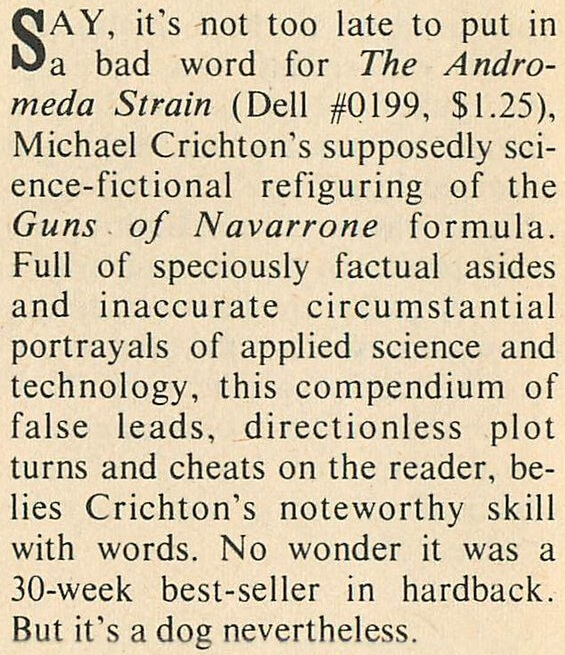
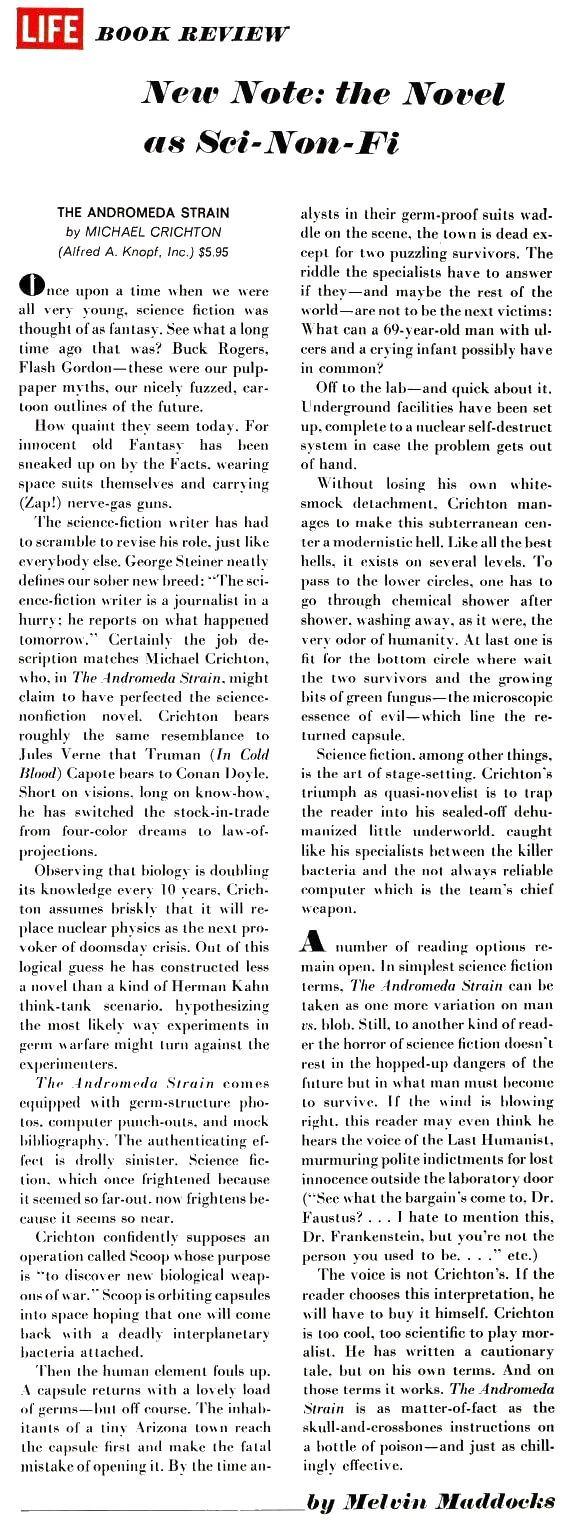
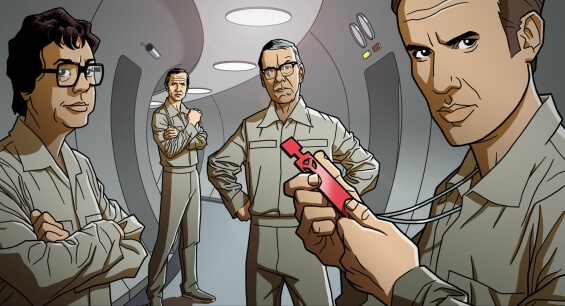

Posted by Jesse Willis

 The SFFaudio Podcast #369 – Jesse and Juliane Kunzendorf discuss The First Men In The Moon by H.G. Wells.
The SFFaudio Podcast #369 – Jesse and Juliane Kunzendorf discuss The First Men In The Moon by H.G. Wells.
Talked about on today’s show:
1900, 1901, dystopia, Looking Backward by Edward Bellamy, The Sleeper Awakes, “on the moon” vs. “in the moon”, Neil Armstrong and Buzz Aldrin, the 1964 movie, the framing story, a multinational crew, technical issues, the 2010 adaptation, putting a frame around the story, a Moon Landing fair, a grumpy old man, a kinematoscope, the “real” first Moon landing, Bedford, differences, no plants on the Moon, drugged up, introducing a woman, men acting stupid, a comedy, how Bedford and Cavor meet, passive aggressive, the three workman, almost comedic, a sinister undertone, The War Of The Worlds in reverse, a disappointing ending for the movie, a really strong ending for the book, to make it a family movie, light and amusing vs sinister and serious, coming from Elizabeth Moon’s Trading In Danger, Wells’ language, The Invisible Man, explaining some scientific principle, analogies, maybe there is something like cavorite, the detection of gravitational waves, glass, bromine solution, transparent to gravity, a dodecahedron, a glass sphere, louvered blinds of cavorite, at the bottom of an ocean of air, shooting all of the Earth’s atmosphere into space, genius, genius!, flying to the Moon, the spaceship as an eye, driving school, always look where you want to go, how eyes work, why the movies have been forgotten, the last transmission, the 2010 movie ending, symmetry, what Wells is saying with this book, the last word, ambiguity, the loneliness of humanity, lost, he’s not his identity, what Cavor is doing in those transmissions, utopia/dystopia, wrestling with our purpose as human beings on the surface of the Earth, one definition of work: activity on or near the Earth’s surface, astronauts and miners, the great mind, hive mind, so much Science Fiction afterwards, how life works, ants, on the topic of war, Bedford is the classical monster character, The Country Of The Blind, crystallized in the 1964 movie, hiding from his debts, Blake, once you start suspecting this guy, some of that story is true, putting a good spin on it, subtlety, gold chains, the Selenite’s head broke just like an eggshell, turning the moon into another colony, the whole history of humanity, fighting over useless things, a mirror in front of humanity, the Native Americans, scientific naivety, are we gonna reform our ways?, WWI, giving ultimatums, honor, respect to warriors, (in vino veritas), the surplus population, later SF, Brave New World by Aldous Huxley, the latter half of this book, the brain, the dictionary, the one who likes to draw, one who is really good at metaphor, off in lala land thinking lala thoughts, the communication specialist, the one who knows all the stuff, the illustrations, the alphas the betas the gammas the deltas, the three worker specialists, the joiner, the earth worker, the metal worker, the name Cavor – caver?, it sounds good, caver vs. cavor, the Lord Bedford, claiming the Moon for the Queen, the BBC audio drama, a very serious book, the Mooncalves, the word “mooncalf”, “abortive fetus of a cow or other farm animal”, all sorts of resonances, a scene that makes vegetarians, the reading material that Bedord brings: TidBits (magazine), selling fishknives, Cavor brings the complete works of William Shakespeare, another connection to Brave New World, The Tempest, a story of colonialism, the only native occupant is Caliban, he’s funny and wise in his untutored way, one of the insults that Prospero throws at , the title of Brave New World, an ironic usage, the one slip-up that Wells mad that Huxley picks-up, Bedford’s play, it would work as a play, act 1, act 2, act 3, the flight as an interlude, trying to find the sphere again, two hours left to go?, another interlude in space, an epilogue, how you would stage it, the gold that he brings back from the Moon, living in Italy, published in The Strand, very meta, you can really see the staging, Cosmopolitan, November 1900 first then The Strand, December 1900, serialized as he wrote it, the end of the Cosmopolitan serialization, an elaborate suicide, a dream, Moon gold, a most extraordinary communication, alive in the Moon, is he hoaxing me here?, The War Of The World radio drama, how the spaceship disappears, the boy who disappears into space, Bedford In Infinite Space, at least 10 days, something weird about time, Einsteinian relativity, time works differently when you travel, criticism of this book, C.S. Lewis’ objections, one world government, new world order, a fascistic totalitarian society, lets look at this, other writers do their own version, a sign of a good book, taking the essence, other interpretations, audio drama as a soporific, two dreams, dreaming the ending of The First Men In The Moon, that’s exactly what happened!, my unconscious or semi-consciousness heard it, such a great ending, left for dead, did Bedford feel guilty for leaving Cavor on the Moon?, not the kind of person to have self-doubts, not very charitable, how it actually went, the best possible spin, this is just the way he is as a human, humans are terrible, his nature, Jesse’s secret, The War Of The Worlds, one of Juliane’s first SF books, the illustrations, reading it with the old serialized magazines, chapter endings, what a great end, did Wells have an influence on the illustrations, how adaptations will always take away the plants on the Moon, The Lost World by Sir Arthur Conan Doyle, seeing dinosaurs with skin, a resultant mistake, dinosaurs in popular culture arent shown with feathers, Jurassic Park and Jurassic World, a false picture of the reality, we’ll never be able to get passed this point, daylight savings time, were stuck unable to shift out of a system that doesn’t work, we’re stuck, were stuck with war, when Bedford is completely alone he loses his particular niche, if you zoom out, we’re nothing, what are we that we have to fight each other, we’re all stuck here with gravity, why those interludes are so important to the book.
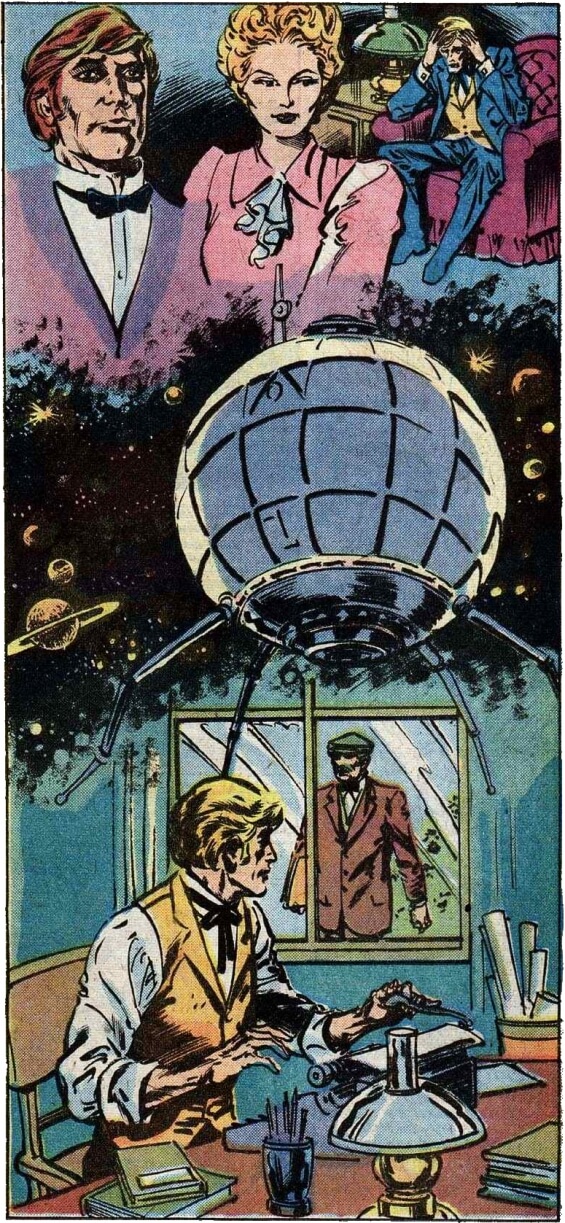
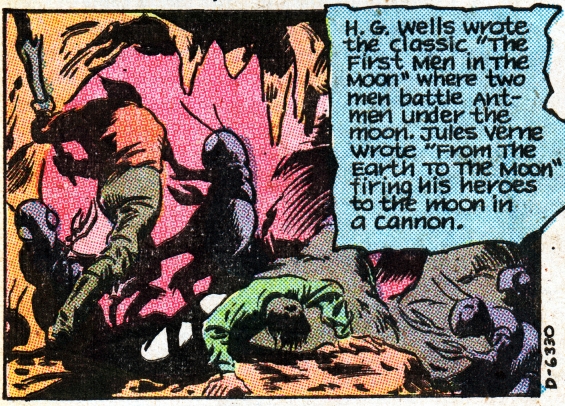
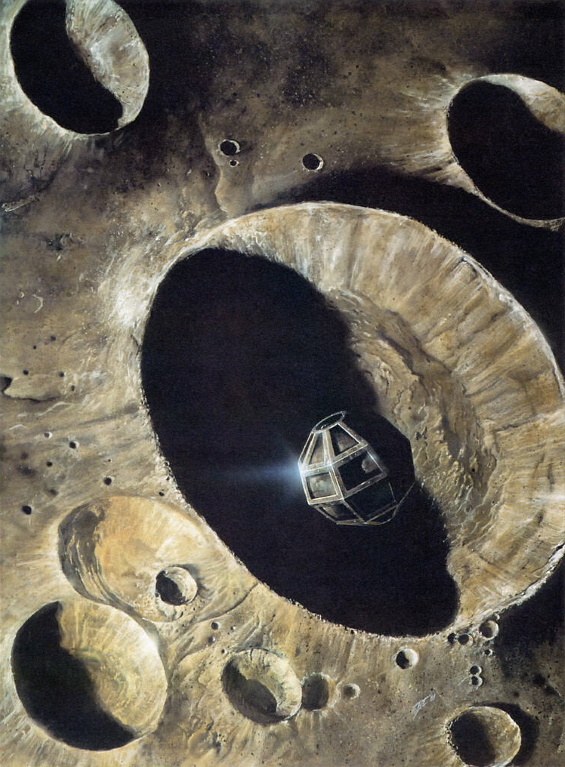
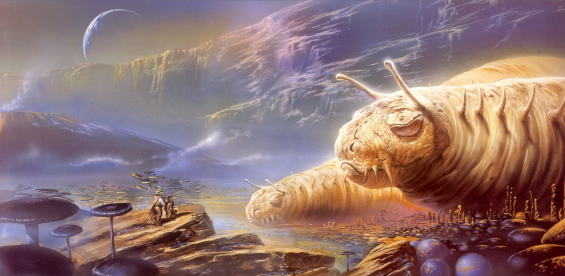
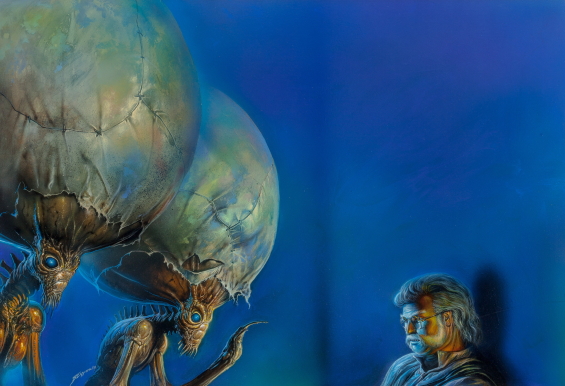
Posted by Jesse Willis


 The SFFaudio Podcast #368 – The First Men In The Moon by H.G. Wells, read by Mark F. Smith.
The SFFaudio Podcast #368 – The First Men In The Moon by H.G. Wells, read by Mark F. Smith.
This UNABRIDGED AUDIOBOOK (7 hours 50 minutes) comes to us courtesy of LibriVox.org. The First Men In The Moon was first serialized in Cosmopolitan, November 1900 to April 1901.
The next SFFaudio Podcast will feature our discussion of it!
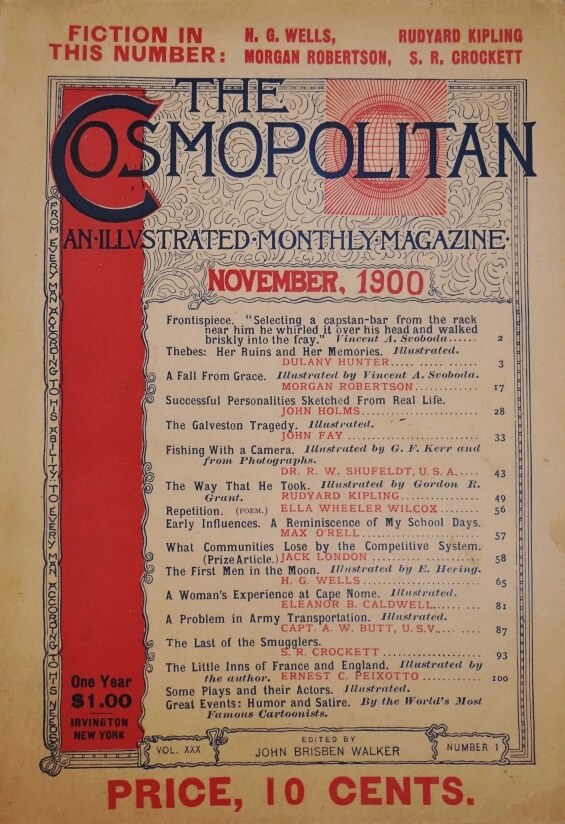
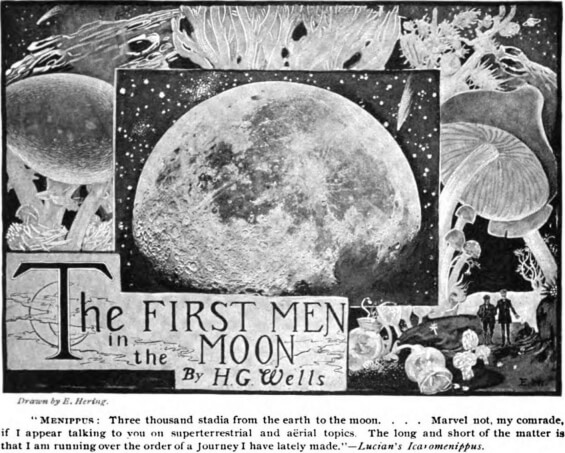
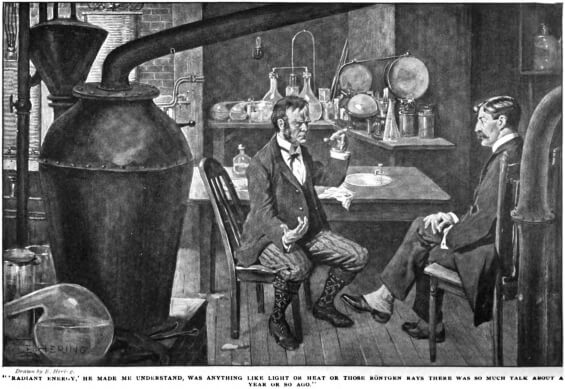
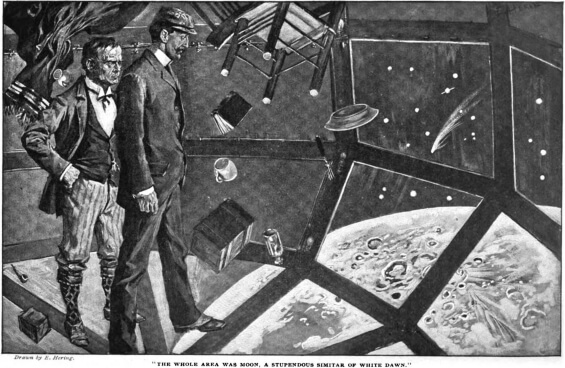
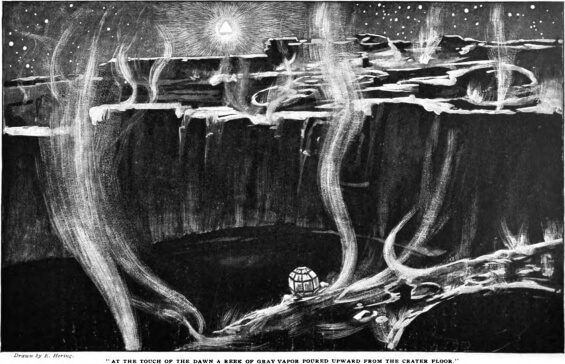
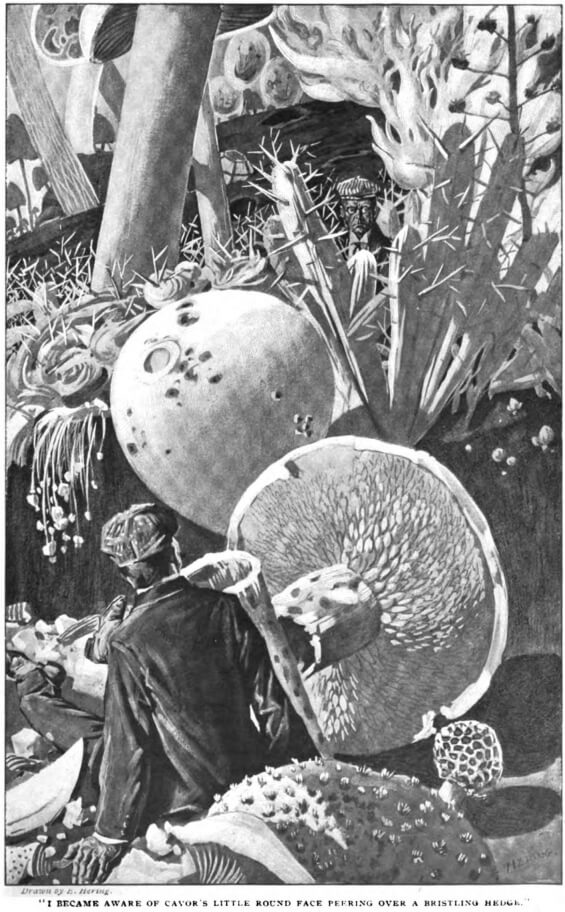
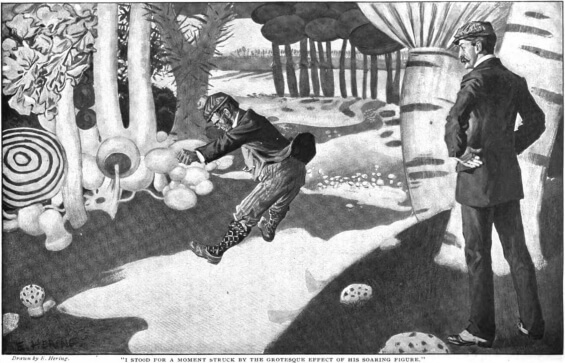
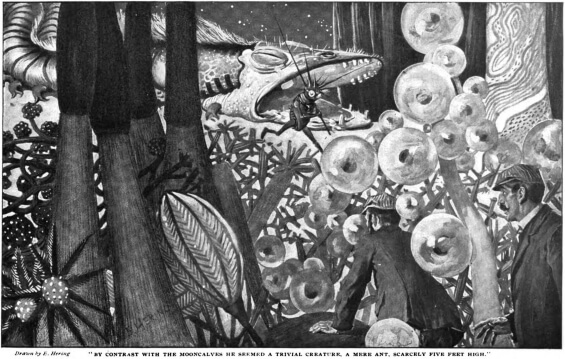
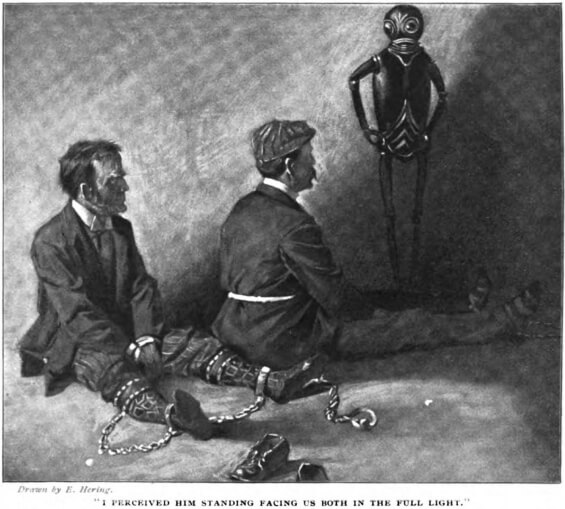
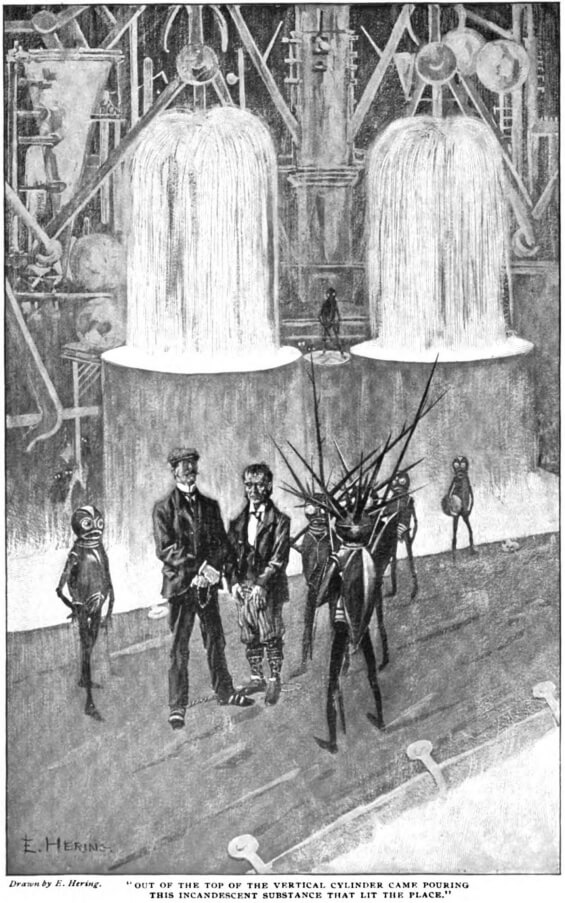
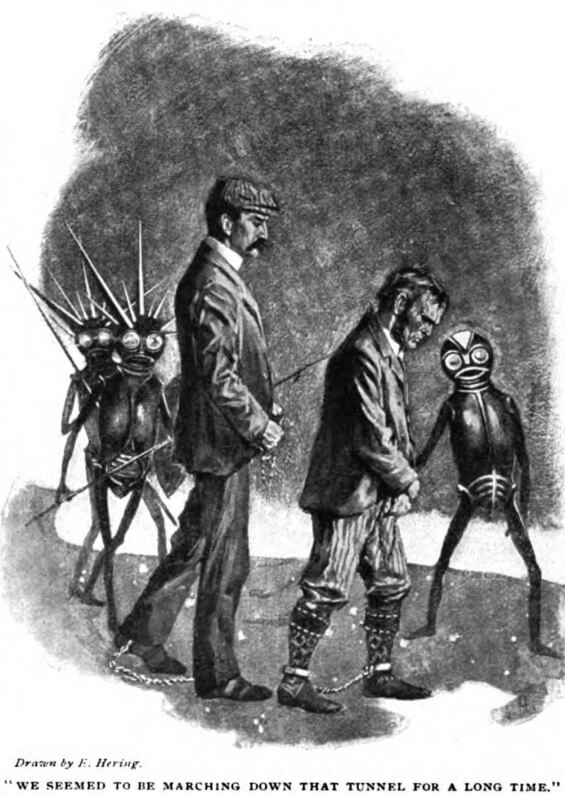
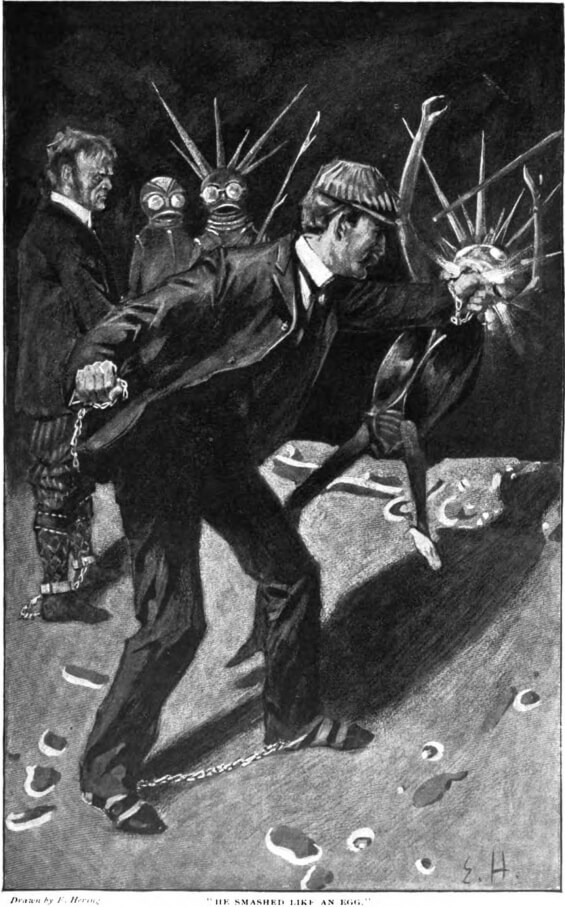
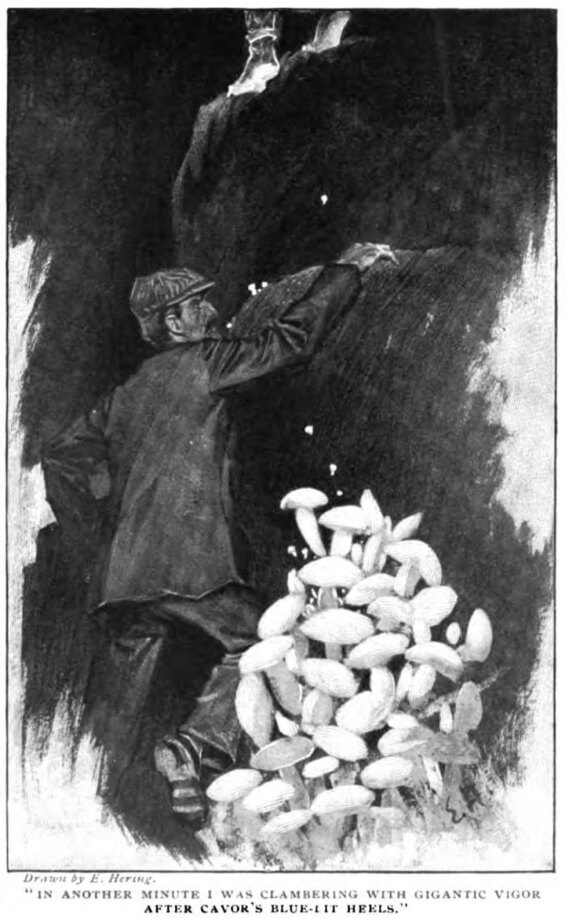
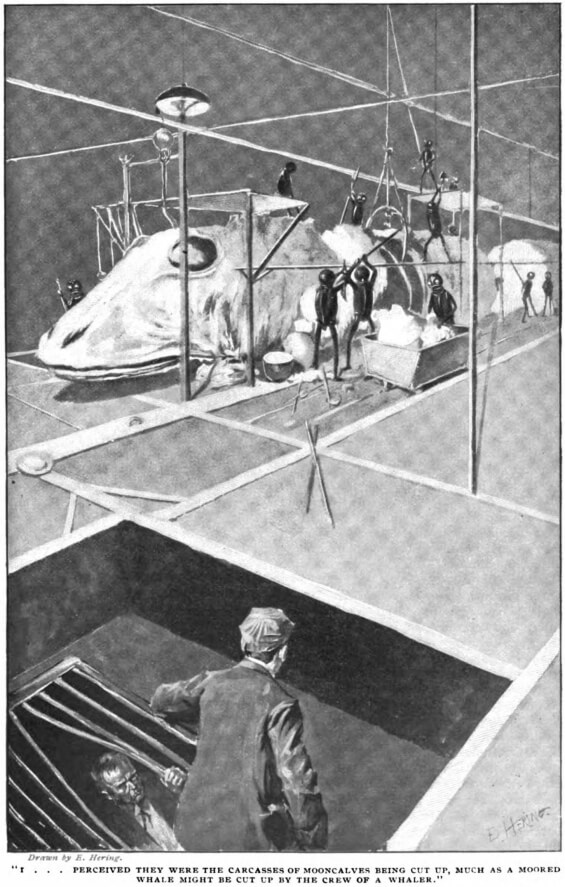
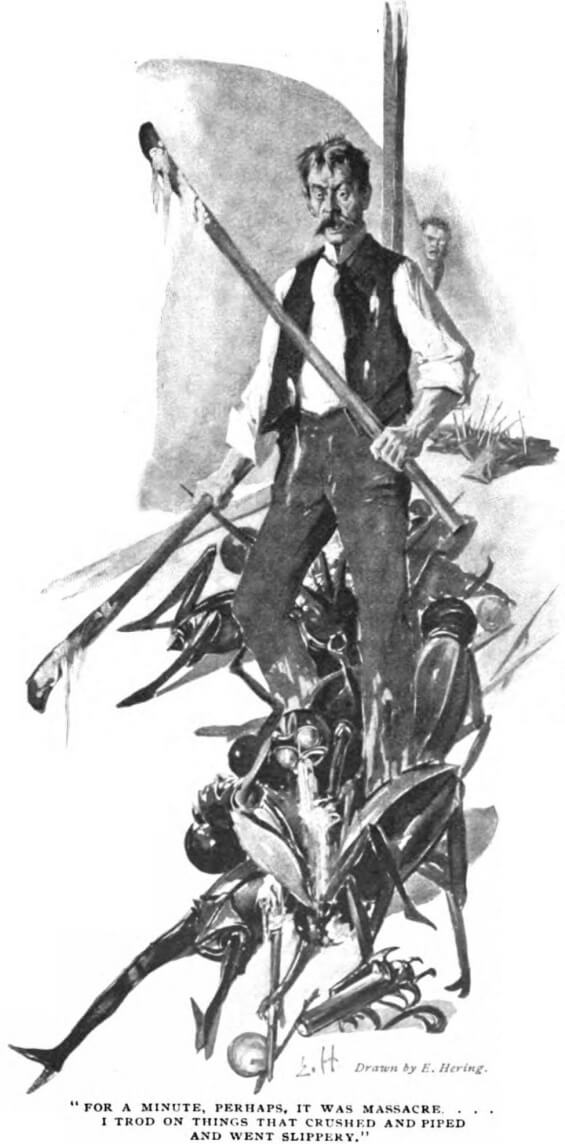
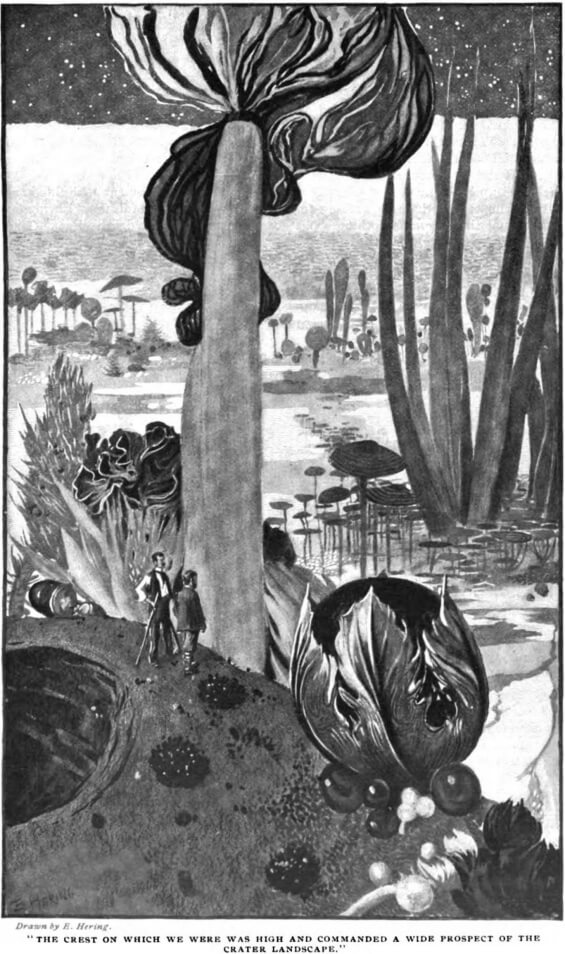
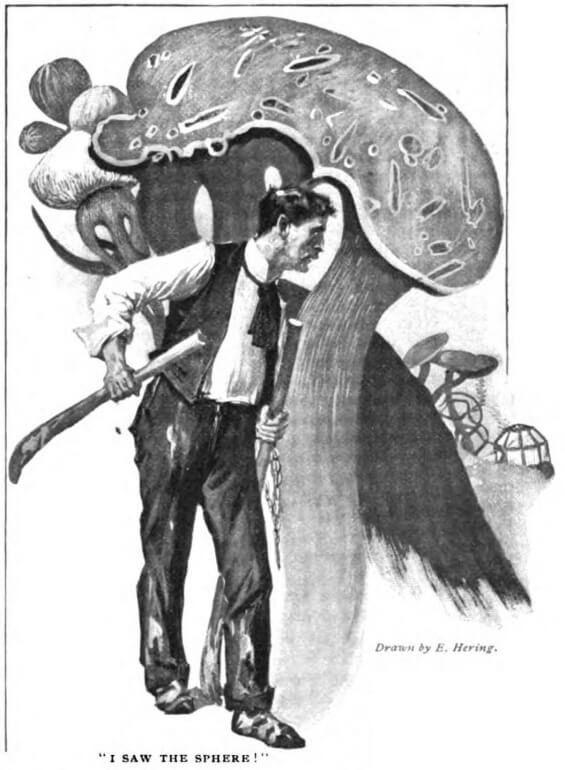
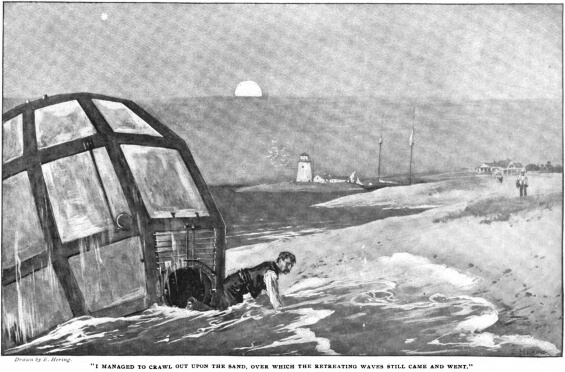
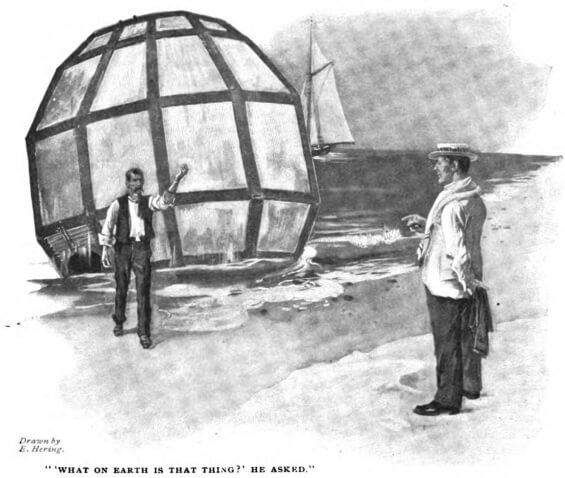
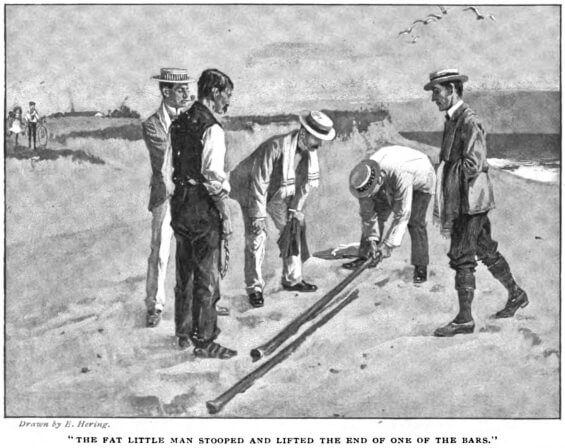

Posted by Jesse Willis

 The SFFaudio Podcast #363 – Jesse, Paul, and Marissa talk about The Puppet Masters by Robert A. Heinlein.
The SFFaudio Podcast #363 – Jesse, Paul, and Marissa talk about The Puppet Masters by Robert A. Heinlein.
Talked about on today’s show:
1951, the really annoying way Heinlein does things, Paul’s main Heinlein phase (in the late 1980s), when Paul was ten, Time Enough For Love, Expanded Universe, the basic parts of a Heinlein novel (in terms of characters), the Heinleinian triad, the young talented protagonist, the older wise crotchety man, and the red headed woman character, who The Man In The High Castle was, when Dick writes a novel…, when Heinlein writes a novel…, methamphetamine is 100% non-habit forming (?!), Jesse is uncomfortable with surety, Heinlein exudes surety from every pore of his body, orbital mechanics, what women want, Bruce Jenner’s gender switch, Heinlein’s politics, black people, women should be raised up in society, homophobia, Mary’s super-power is gaydar, homosexuality, asexuality, marriage, men and women are identical, “of course husband”, the alien is the husband, the structure, the final chapter, in case the mission to Titan fails, message in a bottle storytelling, first person perspective, surety undercuts it, has Dick ever written in first person?, Invasion Of The Body Snatchers, The Hanging Stranger, identical paranoia, how much he hates the Soviets, Heinlein was rabidly anti-communist, in the commissar’s office, WorldCon, God help us all, he was right but…, imagine if this novel is a metaphor for communism, the Second Red Scare, Soviet and Chinese communism, WWWII, Manhattan crater and Washington crater, projecting brawn, getting tanks to North America, the evil of the puppet master aliens, orgies on TV is bad, also gladiatorial combat, they kill cats!, no effect on Soviet Russia, hygiene, scabies and lice, parasitism, cranked up to 13, Saddam Hussein, U.S. politics, if it were re-written today…, core fears, 24 was that, looking at the structure, avenging the cats and dogs, a master of the craft, Luke Burrage, that is good writing, so different from Philip K. Dick’s books, a straight line vs. how did I get here, all the sins that Time Enough For Love, naked people standing around in cushioned apartments talking about legal matters regarding the decanting of babies while a cat walks into the room, get passed the cat, Pirate the cat, casual nudity, Eric S. Rabkin, making it absolutely necessary that the society go nudist (and never go back), Hyperpilosity by L. Sprague de Camp, combs, even in Heinlein’s kids books, in their dome homes the heat is cranked up, was Heinlein a nudist?, Hollywood, downhill after The Moon Is A Harsh Mistress, I Will Fear No Evil, an old white guy living in the body of a young black woman, the US Navy, hate and love for the military, this weird guy from Missouri writes his consciousness into his books, Job: A Comedy Of Justice, Friday, rape, when Heinlein talks about rape…, an artificial person, an inferiority complex, a fascinating society, the movie of The Puppet Masters, the fun stuff, the cat, the alien was kissing, being devoured by a woman, Eric Thal opens his mouth whenever possible, Sam, Mary, why does everyone hate this movie so much, Donald Sutherland, Keith David is always fun, unlike every X-Files this was competent, yeah look it’s a fake, the slugs are really smart, were they smart?, the sequence where Sam first gets a slug on his back is one of the best bits of Science Fiction, its almost as if he doesn’t know, more insidious and more scary, tying it all together, helicopter vs. skycar, Heinlein loves incest, they do juice you up, the addiction metaphor, had Dick developed it…, an Olympic athlete, what’s undercooked, who is in charge of their own minds, choices under some conditions but not under others, if we all had slugs on our backs…, getting married to Mary, love of a good woman ends addiction, black and white, Joe Cinidella is actually Italian until he becomes a Nazi, a flipped switch, turning on the waterworks, operating as a slug, Glory Road, set in fairlyand, Nebraska, all about the contract, an ambivalent relationship with marriage and law, The Moon Is A Harsh Mistress, alpha husbands and beta wives, primae noctis, you get into their psychology, really weird people, WWII and methamphetamines, go pills, tempus fugit, chasing the cat, is Heinlein challenging us?, Star Trek: Operation: Annihilate (aka Planet of the Pancakes), Maissa Bessada, resetting the show at the end of the episode, another point of Vulcan physiology, Kirk’s brother is named “Sam”, Mary is the vessel for world piece, Heinlein sued the makers of The Brain Eaters, Star Trek: The Next Generation, there’s no money until the Ferengi show up, Gene Roddenberry’s philosophy of the post scarcity economy, maybe women did act that way in the 1950s, a sequel in which Mary is saved from her marriage, 1980s tropes, sex scenes, Mission Impossible movies, developing out of taboos, the PG-13 effect, “they’re boffing, ok”, Alien, giant penis monster, Aliens, James Cameron’s problems with Harlan Ellison and The Terminator, The Outer Limits, The Brain Eaters, lifting things out of literary SF, Avatar is very good lifting, redoes the the first movie and the first, Luc Besson, The Professional, adding a baby doesn’t make things better, Ellen Ripley, the corporate military mission, Newt (from Aliens) is Mary (from The Puppet Masters), garbage bunk vs. good orbital mechanics, feral child, the structure is the same, spacesuit -> fighting suit, ejecting from the ship -> ejecting from the planet, a powerful story, Alien 3, Paul fulminates, the nine day fever (Venusian Jungle Fever), encephalitis, The Puppet Masters is a retelling of H.G. Wells’ The War Of The Worlds, here’s how I would do it, H.G. Wells was a cynical asshole, monstrous, liars, jerks, and racists, our CIA operatives know what they’re doing, the NSA, “you just killed a guy for no reason”, it isn’t uncaring wisdom that save humanity it’s man’s ingenuity, root em out and kill em all, it’s the end of Starship Troopers, the Elves of Titan, Independence Day aliens, Welcome to Earth scene, Have Space Suit, Will Travel, Willy Wonka-style, a space alien cop (the Mother Thing), “who lives like that?”, if Heinlein had had a kid, the serial was slightly rewritten by Horace Gold, the unexpurgated version, 1980s movie style, a hook-up with an anonymous blonde from a bar, the trope for James Bond, Virginia Heinlein, Stranger In A Strange Land, it is not better, weird names, Biblical names, Mary’s real name, Sam’s real name is Elihu, in the Book of Job, Elihu’s big speech
Elihu states that suffering may be decreed for the righteous as a protection against greater sin, for moral betterment and warning, and to elicit greater trust and dependence on a merciful, compassionate God in the midst of adversity.
putting us on the right path, x is so bad that we have to put all our trust in…., our precious bodily fluids, if Heinlein were alive today…, Ray Bradbury, the NSA, anarchism, Mary’s backstory, the Whitmanites, an explicit mention of the Doukhobors, Heinlein just likes nudity, Heinlein likes his women to older or a lot younger, physically young but actually older, a young secretary with an old man’s brain, The Cat Who Walked Through Walls, lots of surgeries or whatever, shrugging it off, a different experience than back in the day, you must read ancient authors, for another podcast, you don’t know SFF if you don’t read…, shame at not reading The War Of The Worlds, can you find Heinlein books at new bookstores?, Alfred Bester is great but he wrote two books, genre defining or pioneering, well-written idea SF, almost no science, a bit of politics, marriage, you don’t know SFF if you havent read a Heinlein novel, a long discussion for another time.



















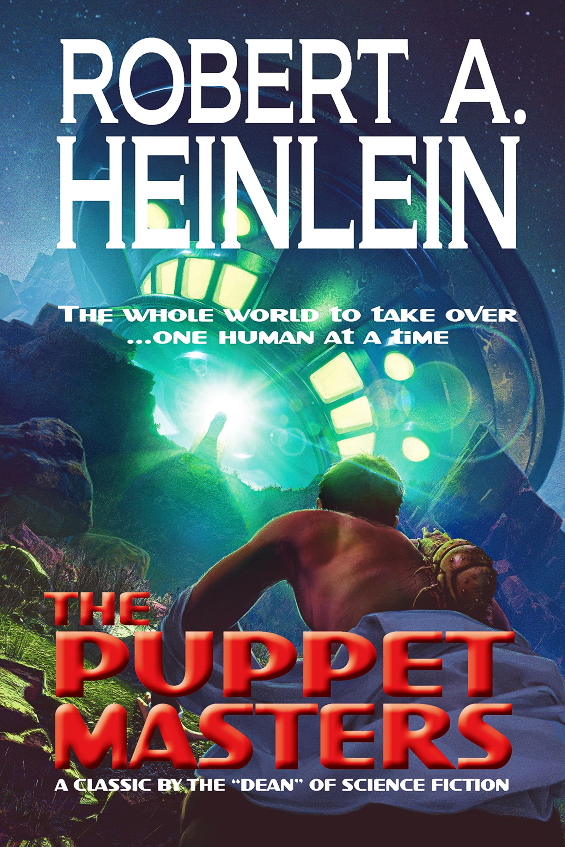
Posted by Jesse Willis